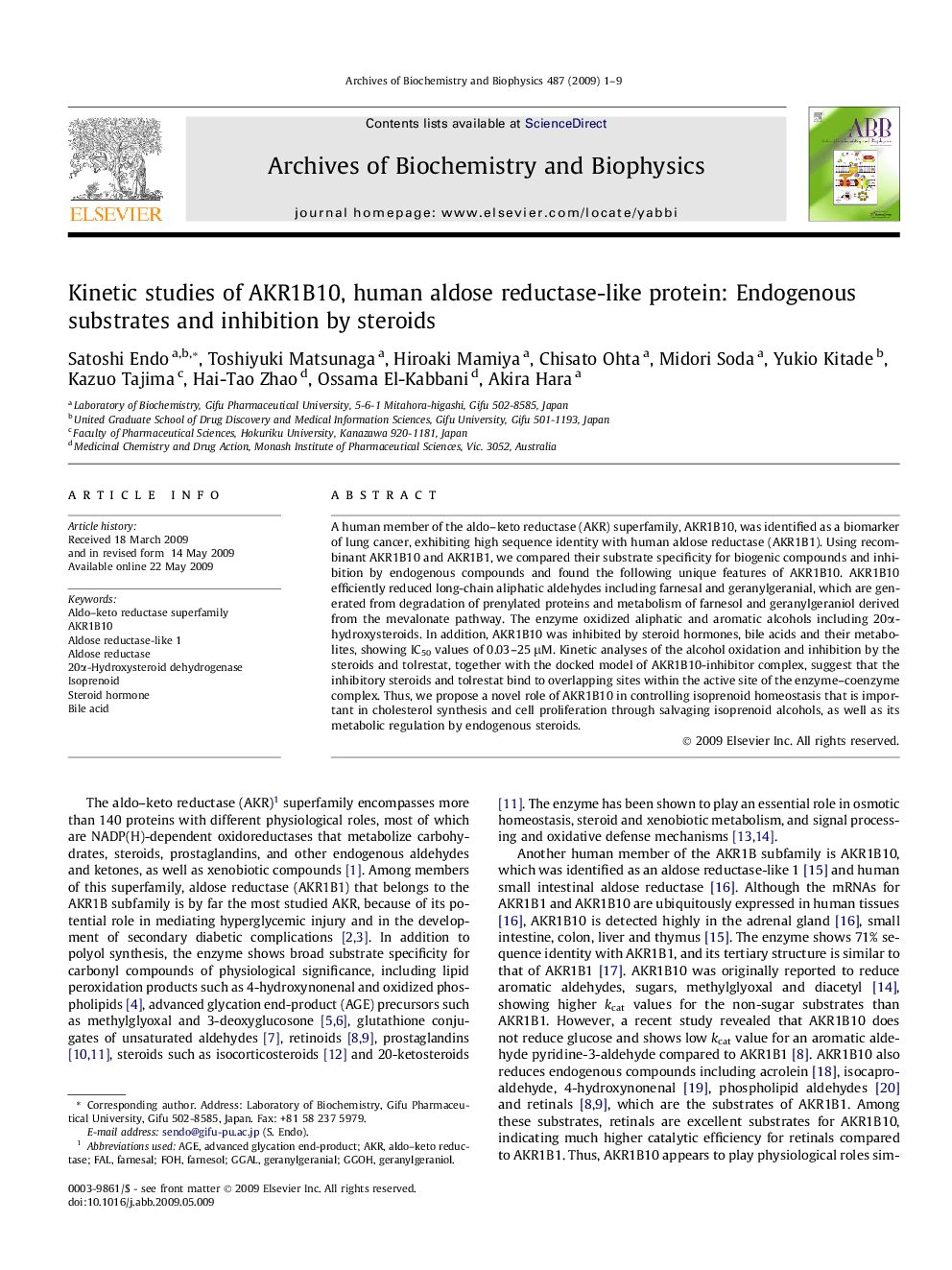| کد مقاله | کد نشریه | سال انتشار | مقاله انگلیسی | نسخه تمام متن |
|---|---|---|---|---|
| 1926306 | 1536453 | 2009 | 9 صفحه PDF | دانلود رایگان |

A human member of the aldo–keto reductase (AKR) superfamily, AKR1B10, was identified as a biomarker of lung cancer, exhibiting high sequence identity with human aldose reductase (AKR1B1). Using recombinant AKR1B10 and AKR1B1, we compared their substrate specificity for biogenic compounds and inhibition by endogenous compounds and found the following unique features of AKR1B10. AKR1B10 efficiently reduced long-chain aliphatic aldehydes including farnesal and geranylgeranial, which are generated from degradation of prenylated proteins and metabolism of farnesol and geranylgeraniol derived from the mevalonate pathway. The enzyme oxidized aliphatic and aromatic alcohols including 20α-hydroxysteroids. In addition, AKR1B10 was inhibited by steroid hormones, bile acids and their metabolites, showing IC50 values of 0.03–25 μM. Kinetic analyses of the alcohol oxidation and inhibition by the steroids and tolrestat, together with the docked model of AKR1B10-inhibitor complex, suggest that the inhibitory steroids and tolrestat bind to overlapping sites within the active site of the enzyme–coenzyme complex. Thus, we propose a novel role of AKR1B10 in controlling isoprenoid homeostasis that is important in cholesterol synthesis and cell proliferation through salvaging isoprenoid alcohols, as well as its metabolic regulation by endogenous steroids.
Journal: Archives of Biochemistry and Biophysics - Volume 487, Issue 1, 1 July 2009, Pages 1–9